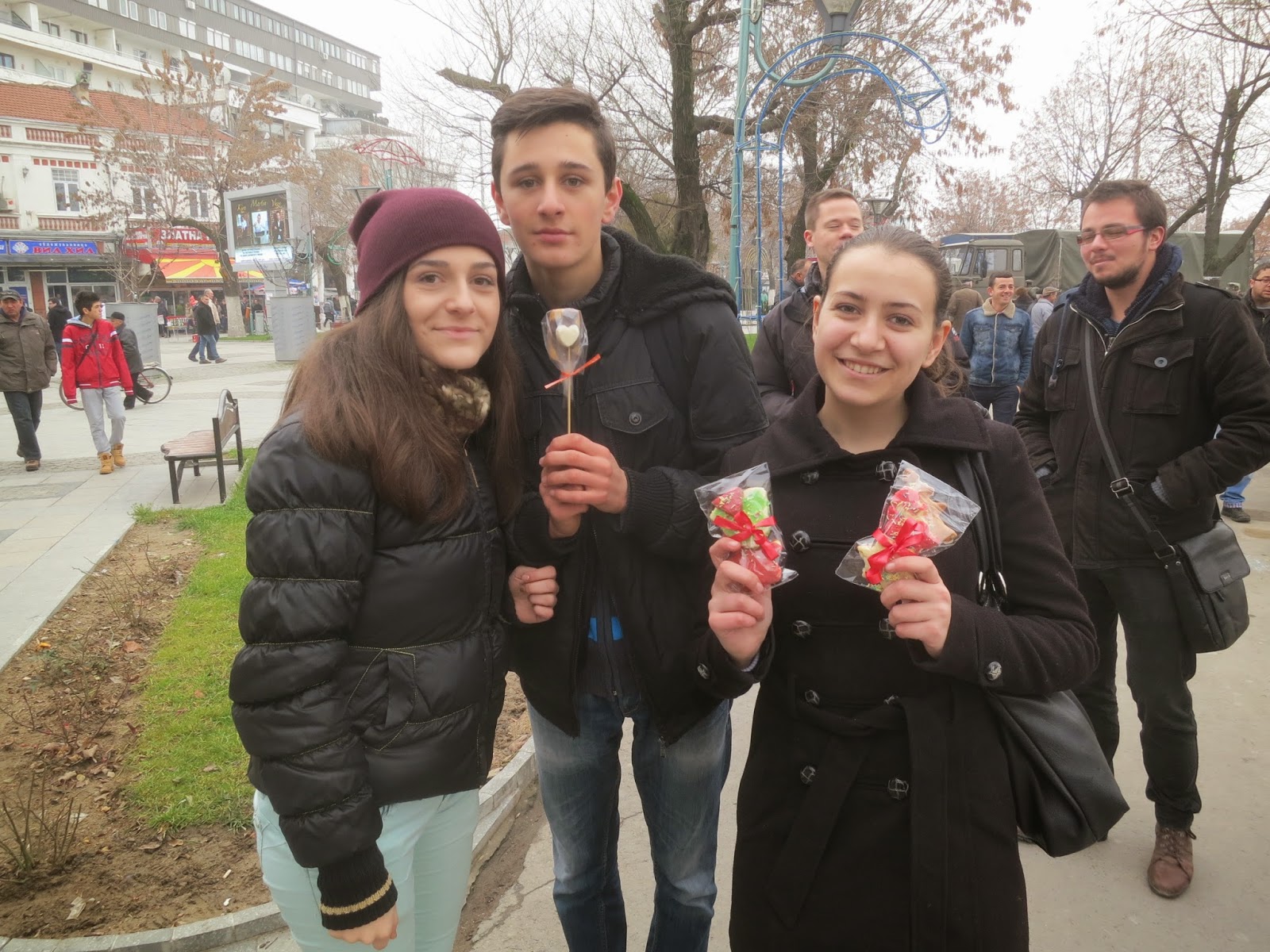Unless. Invested in
that word were a lot of feelings.
Hope. Despair. Fear.
Faith. A prayer. And a rational understanding of the
existential risks. Everything hinged on
that one word, as if it were a sacred chant preserving the balance. As if it were a barrier separating a reality
I once enjoyed, and an impending doom that could strike at any moment.
When people, either Macedonians or Americans, learned that a
Peace Corps service lasts 27 months, many would frequently ask, “Will you ever
return to the USA during the middle of your service?” My response was rote, “I don’t plan on it, unless something terrible happens to me
or to my family back home.” To those who
received my response, I assume that they digested it with a quick
rationale. But every time I recited this
phrase, I would think to myself, “What are the chances?” “Have things improved at home?”
Last year, my father became very sick. His immune system struggled to fight a
combination of bacteria and fungi. He
developed a severe case of pneumonia, and I only discovered recently that it
was almost a miracle that he survived.
This all occurred around October, when I was only about a month and a
half into my service. All I wanted to do was fix this, restore his health in
some way. Yet, there was nothing I could
do. Whether I was in Macedonia or
Chicago, I was helpless, it was all up to him.
The only difference between me staying in Macedonia or returning to
Chicago was that, if those were his last moments, I would have been by his side.
But my father is a fighter, his body beat the infection, and
I am overjoyed that I can speak with him on Skype again. For the most part his life has returned to
normalcy. He eats pizza. He gambles on horses at the OTB. He can see me on Skype, walk around the room,
and hold a conversation. But he did not
emerge from last year’s sickness unscathed.
He is a diabetic, and he struggles against the typical side effects of
this disease. Swollen feet. Bad eyesight.
Problems with his heart. In 2006,
my stepmother donated a kidney to him since his went into failure. Due to the combination of very strong drugs
and antibiotics that helped him fight the infection, his kidney started to fail
him again earlier this year. A Facebook
post by a relative, soliciting to our relatives back in the Philippines to
donate a kidney, brought to my attention my father’s need for an organ
transplant.
Compared to the ordeal last autumn, I was now empowered to
make a difference, to help save my father’s life. I feel a bit less helpless than I did last
year. That is why I have decided to
return to the USA to begin the donation process. As far as I know, this is a temporary trip
that will only interrupt my service, not truncate it. Aware of the impending health risks my father
faced while I was in Macedonia, not only was I worried that something terrible
would happen to him. I also feared that
I would interrupt or cut short my dedication to this Peace Corps service. I feel horrible that I am leaving my host
family and counterparts for an unforeseen amount of time. They rely on me, put me into their schedules,
their weekly habits. Interrupting my
Peace Corps service is not how I originally imagined it. However, putting it hyperbolically, what good
is trying to save the world if I cannot save my own father?
And we are not out of the woods yet. In fact, we are just entering into it. Maybe within a month I will be one kidney
short, my father will have less to worry about.
On the other hand, maybe the doctors will determine that I am not a match,
or that it is too risky for my father to undergo an operation anytime
soon. The next steps are too tentative at
this moment for me to feel completely comfortable. All rests on the tests my father and I will
go through over the next week. Despite
not knowing for sure what is ahead for us, I am granted some solace knowing I
can do more than hope or pray.




























